- Home
- Fredric Brown
The Far Cry Page 4
The Far Cry Read online
Page 4
"I was standing here," Pepe said. He’d moved a few steps from the parked car. He pointed. "Through that window I saw into the house. That is the kitchen."
"About what time was this?" Weaver interrupted. He’d have to know the day and the date, too, of course, but he could always find that out from newspapers or court records and he wanted to concentrate now on the eyewitness account he was about to hear.
"About like now. About eight o'clock. I was fishing in the arroyo and was coming home. I was late. I was walking past this house and I was about here—”
"The leg, Pepe," Sanchez prompted.
"I had hurt my ankle, twisted it. That is why I was late. I was limping and could not walk fast. The light was on in the kitchen. I could see through the window—"
"Wait," Weaver said. "I’m sorry to keep on interrupting, but let me go inside and turn on the kitchen light, so it will be just like it was then. That was the only light on?"
"Yes, I think."
Weaver went into the house and turned on the kitchen light. He came out and stood beside Pepe again. "All right," he said.
"Yes, this is where I stood, because I could see the back door like now. The young lady was standing against the door, maybe two steps from it with her back toward it. She was backing slow like she was afraid if she moved fast he would move fast, too, before she could get there. She was very afraid. She had one hand behind her like she was reaching for the doorknob and the other hand was out in front like to hold off the knife.”
"And you could see the man, too, Nelson?"
"Yes," Pepe said. "His shoulder, the back of his head. His arm raised with the knife in his hand. It looked like a kitchen knife and he held it wrong, not like you hold a knife for fighting. He held it for stabbing down and that is the wrong way.”
"You didn’t see his face, then. You're sure it was Nelson?"
"Yes, from the shape of his head I could tell, and from his hair. It was light, like straw, and he wore it very short, straight up.”
“A crew cut?”
"I think that’s what they call it. And later when he went through the door, the kitchen door, after her I saw some of the side of his face when he turned a little bit. I am sure it was Mr. Nelson."
"But you’d never seen the girl before?"
"No, I did not know there was a woman in the house. Mr. Nelson lived there alone. That was why I first stopped to look when I saw her through the window."
Weaver said, “All right, go on. What happened?"
"She got the door opened and got out before he got to her. And he ran out after her. That was all I saw."
"You didn’t see either of them after they went through the door?"
"The house was in between. She ran straight back and it was dark. I heard her scream out once when she was far. That was all. I got home as fast as I could, limping, to tell my father. That is all I know. They did not take me back with them."
Weaver nodded. He wanted to ask the elder Sanchez what had happened after that, but he could ask that while they were inside having the drinks he had suggested. He invited them in and poured three generous glasses from the jug of muscatel. They thanked him as he handed glasses to each of them.
Weaver asked Sanchez, "You came back with the sheriff?"
"Yes. The door was not locked and the lights were not on. He knocked first and called and then he went inside and turned on all the lights. Nothing, he said. We came away."
Weaver sipped his wine and looked at Pepe. "What did Jenny Ames look like?"
"Pretty, I think. Her hair was black but her face was very white. Maybe because she was so afraid. Just a few seconds I saw her. That is all I remember."
"How was she dressed?"
"A green dress, I think.”
"Blue, Pepe," Sanchez said. "A blue dress she was found in.”
Pepe shrugged. "A blue dress, maybe."
“And can you describe Nelson—outside of his hair? You already told me about that."
"He was tall. Taller than you, and heavier. He was very good-looking, I think. But he was not friendly with people."
"Did anyone see him after that?" Weaver turned to Sanchez again.
“Yes, The sheriff, he did not believe Pepe but he come back next day to talk to Mister Nelson. Mister Nelson said he was driving his car the evening before. He said he never had a woman in his place, that Pepe make mistake. And the sheriff looked around house, inside, outside again by day and he find nothing, nothing to show a woman was there. So the sheriff he left. A day, two days after that Mister Nelson left the house and this country. And two months more is found the body of the woman."
Weaver nodded. There were a lot more questions, but he had his full eyewitness account and he could probably find a better source of other information.
He said, “Uh—Pepe. We took you away from a dance, and I want to get you back. But is there time for another drink?"
"Thank you, Mister Weaver." It was Sanchez who answered, not Pepe. "The dance, it will last late. There is no hurry."
Weaver poured another drink. But he could see from the sullen expression on the boy's face that he didn’t enjoy staying, so he set a fast pace in finishing the drink and didn’t suggest a third.
He drove them back to Arroyo Seco, dropping Sanchez off at the house and insisting on driving Pepe on to the dance hall, although it was only a few hundred yards further on.
He drove faster going home through the night that suddenly seemed—for no reason he could name—to press about him.
And, when he got there, it seemed to press about the little adobe house, to press against the panes of the windows once he was inside it.
He poured himself another drink, a stiff one, this time from part of a bottle of whisky that was in the cupboard.
He looked at the kitchen door and shivered a little, almost seeing the girl standing there, terror in her White face under black hair, as she groped behind her for the knob.
Might as well finish the whisky, he decided. He poured himself another but before he started on it he got paper and pencil. He’d better get down notes on Pepe Sanchez’s eyewitness story while it was fresh in his mind, while he was sober, and before he might forget any details.
He got it down on paper and the whisky was gone so he poured himself another glass of the wine. It tasted good and he wondered why he'd bothered changing to the whisky first; he’d been acquiring a taste for sweet wine. He’d never really liked the taste of whisky anyway and wine made you just as drunk but with fewer unpleasant aftereffects.
He sat and thought and drank. He looked at his watch and it was a few minutes after eleven and after a long while he looked at his watch again and it was still the same time. So he’d forgotten to wind his watch that morning and now he didn’t know what time it was. And he didn’t care.
He was drunk and he didn’t care about that either. But his bladder did. He went outside and walked to the little bridge along the creek between the house and the road and stood for a minute or two, swaying a bit, at the edge of the bridge. The wind, a cool night wind, blew against him and he wetted his trouser legs very slightly. Who was it had cautioned against pissing against the wind? Oh yes, Rabelais, good old Rabelais. He’d have to get a copy of Gargantua and Pantagruel and read it again. Great stuff. The goose's neck and the ring of Hans Carvel and all that.
He was drunk. He looked back at the house, with the kitchen window lighted because he’d been sitting in that room, and then he went on across the bridge and a few steps along the edge of the road.
This was where Pepe Sanchez had stood.
The window, and through it the back door that led out into the dark night and violent death after a far cry. Beyond a murderer's shoulder and an upraised knife, a frightened, pretty girl with black hair.
Forget it.
Stumble back into the house and sit again at the table. Stare at the door again and picture the girl backed against it. Put yourself into her mind—a madman coming toward her, light glinting fro
m the upraised knife, murder in his face. Pepe had not seen his face, but Jenny had. The door, and night and death beyond.
Funny, Weaver thought, murder really happens. He’d never had direct contact with it before; it was just something you read about and you don’t disbelieve it but you don’t realize it either.
Somehow, he was realizing this one.
He poured himself another drink and then, when he had drunk part of it, the room was going in circling, dizzying swoops that put a feeling in his genitals like the feeling you get in a dropping elevator.
And then it was gray early morning and lifted his head from the table. There was the sickly smell of vomit somewhere and there was an awful taste in his mouth and yellow fog in his mind.
He wanted water, lots of cold water. Inside him first, then outside. He drank three dippers of it from the bucket he had carried from the stream. He went outside, then, into the cool freshness of the dawn. He stripped off his clothes and walked into the cold shallow stream. He knelt in it and splashed icy water over his body, gasping with the shock of it, but feeling as though he was washing his follies away and that there’d never be another night as foolish as that one.
Cleansed and shivering, he went back into the house. He dried himself off and put on pajamas. He thought, I don’t want to wake to this, so he cleaned up the vomit and put away the bottle and the jug and the glasses; he made a bundle of the clothes he had stripped off so he could take them in to the cleaner’s without having to look at them again. The day was bright by then although the sun was not yet above the mountains; he turned off the light which was still burning a sickly yellow in the bright daylight.
He got under blankets on the bed and he thought: Why did I do that? I must never do it again. And then he slept.
When he wakened the position of the sun told him it was almost noon. He got up and dressed, feeling a bit shaky but almost human. There was, while he was dressing, the almost-remembrance of a dream, but he couldn’t grasp it; it faded even as his mind reached for it. It didn't matter, he told himself; dreams are random, meaningless things.
He didn’t feel up to making coffee for himself so he drove into Taos as soon as he dressed. He had breakfast at the coffee shop at La Fonda and set and wound his watch; it was a quarter of twelve.
He went to the post office and there was no mail for him.
Maybe, he decided, he should go around to the local newspaper—a weekly called El Crepusculo—and get as many of the rest of the facts about the Jenny Ames murder as he could. The sooner he got that off his mind, the better he was going to feel. After last night, he was almost sorry he’d started it. Or would he have got drunk anyway?
It was lunch hour now, just the wrong time to go around. But breakfast had made him feel better and now that he’d eaten, a pickup drink would do him more good than harm, if he held it to one.
He killed time by driving out to Sagebrush Inn, a couple of miles from town in the direction of Santa Fe, for his drink. He held it to two drinks and then it was one-thirty and time for him to try the newspaper office.
The editor, whose desk was just inside the door, was a short, stocky man with sandy hair in a crew cut—like Nelson’s, Weaver thought. He introduced himself.
The editor put out a hand. "My name’s Callahan, Mr. Weaver. What can I do for you?"
Weaver told him. “. . . so if you’ve got back files—that is, if your paper goes back eight years—I should have asked that first, I guess."
Callahan grinned. "We go back more than eight years. This is the oldest paper in the Southwest; it was founded in 1835. I’m afraid you'll have to study what you want here, though; we can’t let our bound volumes go out."
"That'll be fine,” Weaver said.
Callahan left the outer room and came back with a big volume of bound newspapers which he put down on the counter. "This is the year. As I recall it, Jenny Ames' body was found in July—or it could have been August. You'd better start looking in July."
Weaver thanked him and leafed through to the first July issue; there wasn't any headline that sounded liker so he turned on; nothing for the second issue in July. But there was a headline in the third; BODY OF UNIDENTIFIED WOMAN FOUND NEAR SECO.
Callahan had stepped back to the counter beside him. He said, "Yes, I remember now. That story broke on a Wednesday, just before we went to press. You'll find nothing there but the finding of the body. In the next issue you'll get the details—about all of them that were ever known. Would you like paper and pencil?"
"Paper, if I may have some. I have a pencil.”
Weaver read the story of the finding of the body. It had been found by one Ramon Camillo, a resident of Arroyo Seco, while out hunting. It had been buried in a very sha1low grave in sandy soil, apparently scooped out by hand and hastily covered. A dog or a coyote had dug a hole down to the body, which was under only six or eight inches of dirt, and Camillo had found the grave because of the odor coming from the hole. He had looked down and seen what looked like black human hair and he had moved enough of the sand to be sure that what was buried there really was a human body. He had returned to Seco and had phoned the sheriff in Taos. The sheriff had brought the coroner and a deputy with him and the body had been exhumed, It was considerably decomposed but appeared according to the coroner, a Dr. Gomez—to be the body of a young woman, dead for about two to two and a half months The coroner would perform an autopsy and an inquest would be held.
Weaver glanced at Callahan, who was still standing beside him. "Didn't they connect it up, right away, with the story Pepe Sanchez had told them about seeing Nelson chasing a woman with a knife?"
“Freeman—that's the sheriff who was in office then—says he did, but that he was saving that angle until the inquest and until he had a chance to see if he could trace Nelson before the alarm went out. I didn’t make the connection self because I didn't know about the Sanchez boy’s story until Freeman told me about it afterwards. At the time we went to press with that first story I didn't even know that it was obvious from first glance that the girl had died of knife wounds—Freeman held that out on me too."
Weaver made a note of the date the body had been found and of the three names that appeared in the story—Ramon Camillo, Sheriff Will Freeman, Dr. Alberto Gomez, the coroner. The rest of it he could remember.
He turned over to the front page of the next week’s paper.
The story rated a banner head this time and two and a half columns of the front page. The inquest had been held the previous Tuesday.
Weaver read the story closely and attentively, making notes again of names and dates and relying on his memory for other details. Callahan had gone back to his desk, so there wasn’t any hurry. And there ought to be almost enough right here, he thought, to make a story for Luke Ashley. Or maybe not—Luke must have read this too, if he’d spent a few days on the case, and he must have decided something was missing.
The inquest had opened with Ramon Camillo’s story of his finding of the body-the same story, with a few added but unimportant details, as had been told in the previous issue.
Then Pepe Sanchez had been put on the stand and had told his story of two months previous. It was substantially the story Pepe had told Weaver the evening before—a1though it had been more vivid and real there in the dark with Pepe pointing at the lighted window and telling what he had seen from the very spot from which he had seen it.
The sheriff himself had then taken the stand and had told his share of the events of that night. How he’d had the call from Sanchez and had taken a deputy with him to Seco; how they’d gone to Nelson’s place but had failed to find anything to substantiate the boy’s story and had returned to Taos. How he’d gone out again the next day and had talked to Nelson and had—with Nelson’s permission—made an even more thorough investigation and had found nothing suspicious or nothing to contradict Nelson's story that he had never had a woman guest—let alone chased one out into the night with a knife.
Freeman testi
fied that Nelson's reputation had backed up his statement that he had never had a woman guest. Nelson had done occasional moderate drinking at local public places and he had made a few casual acquaintances, but none of them had been women. As far as was known, he had never either visited anyone or been visited. He claimed to be an artist—and had various canvases and painting equipment at his house when the sheriff had searched it, but he had never exhibited locally. Nor, to the knowledge of anyone in Taos, had he ever sold a painting.
The next few witnesses were people who, as the result of slight and casual contacts with Nelson, confirmed—but added little to—what Freeman had already told about Nelson’s local reputation and local lack of knowledge concerning him.
The next witness was, next to Pepe, the star of the proceedings; it was she who was able to identify the victim, at least by description and the circumstance of dates, as the girl who, two months before, had ridden up from Santa Fe with her on the bus on the afternoon of the murder—and to supply her name, Jenny Ames.
The witness was Carlotta Evers; she was clerk and bookkeeper at a Taos clothing store.
Miss Evers testified that on the day in question she had been returning from a vacation in Santa Fe and had boarded the afternoon bus for Taos just before it left the bus station at one o’clock. The only seat left vacant was one next to a pretty, dark-haired girl; she had taken that seat and had fallen into conversation, during the several-hour trip, with the girl, who had seemed very eager to talk, especially after she learned that Miss Evers lived in Taos.
She introduced herself as Jenny Ames and said that she was coming to Taos to live, and to marry a man who was then living there. She asked Miss Evers if she knew an artist named Charles Nelson. Miss Evers had not known him.
But she answered innumerable eager questions about Taos itself and the country around it—Jenny Ames had told her that Nelson lived about ten miles out of Taos, past a place called Arroyo Seco—and she said that Jenny Ames had been "starry-eyed” in her eagerness to get there.
The conversation had been casual and two months before and Miss Evers could not remember whether Jenny Ames had mentioned where she came from or not; if even the general section of the country had been mentioned she could not remember it. She did have the impression that it wasn’t New Mexico, possibly from the number of questions Jenny Ames had asked about the Spanish-American people who made up the bulk of the population of that state. She couldn't describe Jenny Ames any more accurately than Pepe Sanchez had, except for details of clothing—but the descriptions coincided as far as they went.

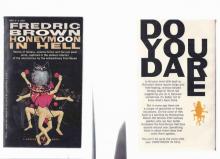 Hall of Mirrors
Hall of Mirrors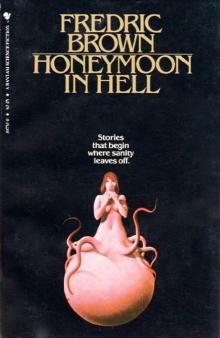 Honeymoon in Hell
Honeymoon in Hell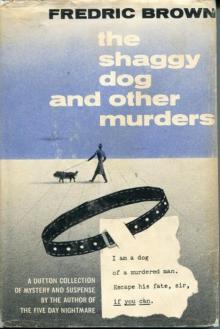 The Shaggy Dog and Other Murders
The Shaggy Dog and Other Murders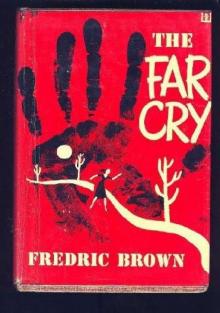 The Far Cry
The Far Cry Arena
Arena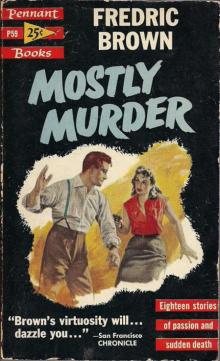 Mostly Murder
Mostly Murder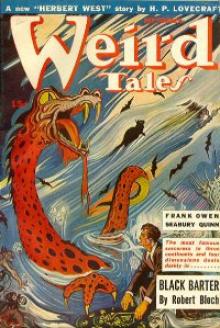 The Geezenstacks
The Geezenstacks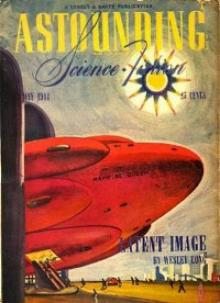 The Yehudi Principle
The Yehudi Principle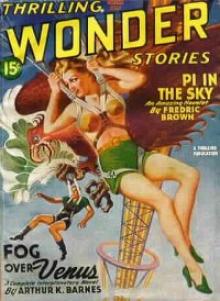 Pi in the Sky
Pi in the Sky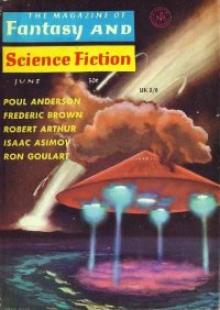 Eine Kleine Nachtmusik
Eine Kleine Nachtmusik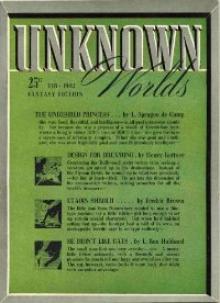 Etaoin Shrdlu
Etaoin Shrdlu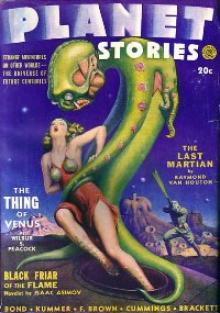 The Star Mouse
The Star Mouse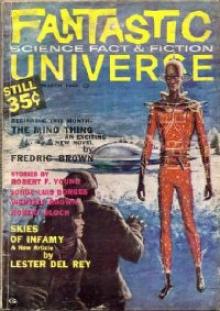 The Mind Thing
The Mind Thing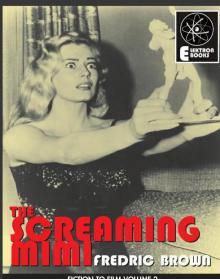 The Screaming Mimi
The Screaming Mimi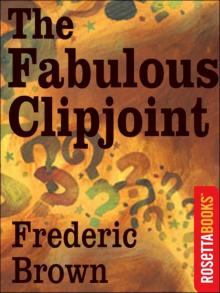 The Fabulous Clipjoint
The Fabulous Clipjoint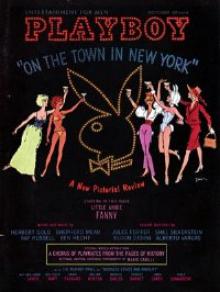 Puppet Show
Puppet Show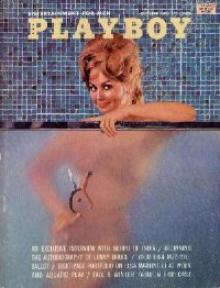 It Didn't Happen
It Didn't Happen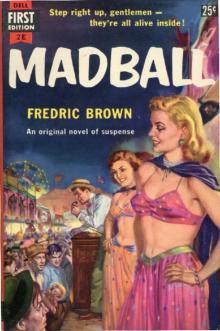 Madball
Madball Happy Ending
Happy Ending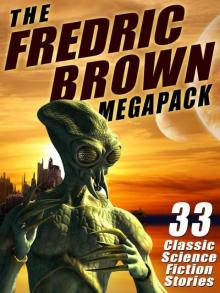 The Fredric Brown Megapack: 33 Classic Science Fiction Stories
The Fredric Brown Megapack: 33 Classic Science Fiction Stories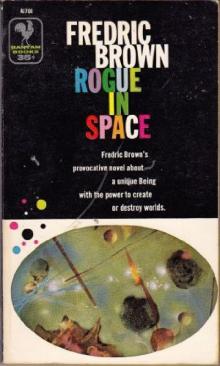 Rogue in Space
Rogue in Space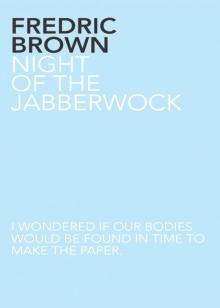 Night of the Jabberwock
Night of the Jabberwock The Dead Ringer
The Dead Ringer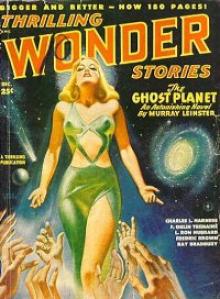 Knock
Knock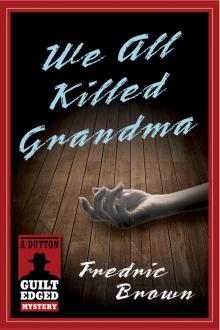 We All Killed Grandma
We All Killed Grandma Space On My Hands
Space On My Hands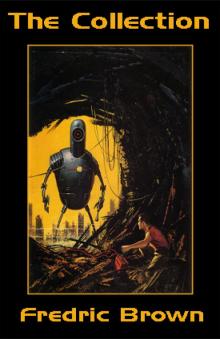 The Collection
The Collection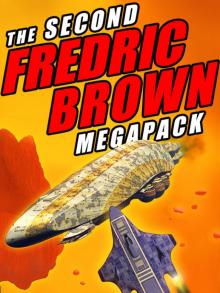 The Second Fredric Brown Megapack: 27 Classic Science Fiction Stories
The Second Fredric Brown Megapack: 27 Classic Science Fiction Stories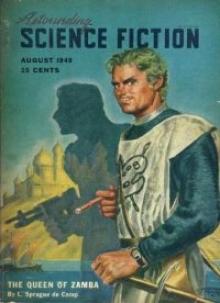 Letter to a Phoenix
Letter to a Phoenix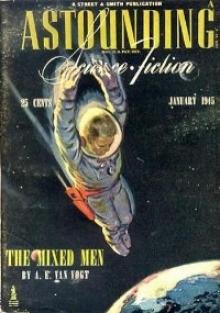 The Waveries
The Waveries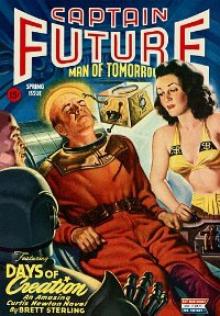 Nothing Sirius
Nothing Sirius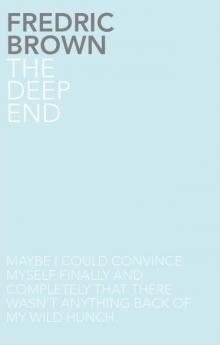 The Deep End
The Deep End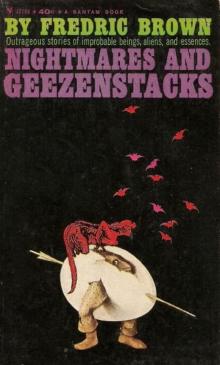 Nightmares & Geezenstacks
Nightmares & Geezenstacks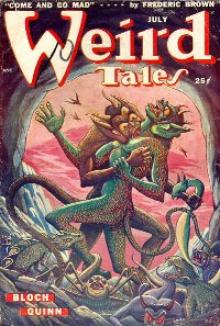 Come and Go Mad
Come and Go Mad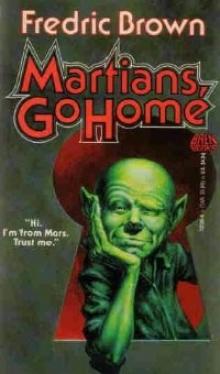 Martians, Go Home
Martians, Go Home